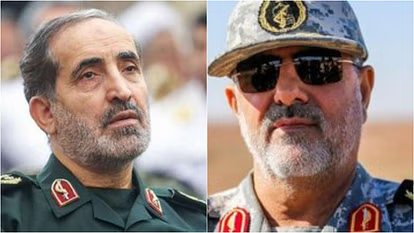Iran Makes Key Military Appointments After Israeli Attacks Kill Top Officers
In a major development following the deadly Israeli airstrikes, Iran has announced new high-level military appointments. These changes come after several senior Iranian military officers were killed during coordinated Israeli attacks on Iran’s nuclear and military installations early on Friday, June 13. The strikes targeted sensitive defense facilities, leading to a significant loss of Iran’s top military leadership.
In response, Iran’s Supreme Leader, Ayatollah Ali Khamenei, acted swiftly to reorganize and reinforce the country’s military structure. He entrusted key positions to his most loyal and experienced commanders to ensure continuity, strengthen defense readiness, and prepare for a potential escalation in regional conflict.
General Hatami Named Chief Commander of the Iranian Army
Ayatollah Khamenei appointed Major General Amir Hatami as the new Chief Commander of the Iranian Army. General Hatami previously served as Iran’s Defense Minister from 2013 to 2021. Known for his strategic insights and loyalty to the Islamic Republic, Hatami’s leadership is expected to bring “transformational and revolutionary changes” to the army, as noted in Khamenei’s official statement. The Supreme Leader praised his commitment, experience, and capability to lead during challenging times.
Sayyed Abdulrahim Mousavi Appointed Chief of Staff of Armed Forces
Following the death of Lieutenant General Mohammad Hossein Bagheri, the former Chief of Staff of Iran’s Armed Forces, Khamenei appointed Major General Sayyed Abdulrahim Mousavi to fill the vacant role. Mousavi, a seasoned military leader, has served Iran for decades and is seen as a trusted figure within the defense establishment. Khamenei emphasized that his proven track record and extensive experience make him the right choice to coordinate the operations of Iran’s multi-branch military forces.
Major General Pakpur Becomes Commander-in-Chief of the IRGC
In another critical appointment, Major General Mohammad Pakpur was named the Commander-in-Chief of the Islamic Revolutionary Guard Corps (IRGC). This followed the death of Lieutenant General Hossein Salami, who led the IRGC until he was killed in the Israeli strikes. Pakpur, who previously held senior positions within the IRGC Ground Forces, is recognized for his frontline leadership and deep understanding of strategic warfare.
Ali Shadmani Takes Over Khatam al-Anbiya (PBUH) Central Headquarters
Major General Ali Shadmani has been appointed as the new commander of the Khatam al-Anbiya Central Headquarters, replacing Lieutenant General Gholamali Rashid, another casualty of the Israeli attacks. This headquarters is a key command center responsible for coordinating Iran’s military strategy and operations, making Shadmani’s role vital to Iran’s defense response planning.
Senior Officers Killed in the Israeli Strikes
The Israeli attacks resulted in the deaths of several high-ranking Iranian military officials:
- Lieutenant General Mohammad Hossein Bagheri – Former Chief of Staff of the Armed Forces
- Lieutenant General Hossein Salami – Former Commander-in-Chief of the IRGC
- Amir Ali Hajizadeh – Head of the IRGC Aerospace Force
- Lieutenant General Gholamali Rashid – Commander of Khatam al-Anbiya Central HQ
These leaders played crucial roles in Iran’s military strategy and national security apparatus. Their loss has dealt a serious blow to Iran’s defense hierarchy.
Israeli Strikes on Iran’s Nuclear Facilities
The Israeli Defense Forces (IDF) confirmed launching precision strikes on Iran’s nuclear infrastructure, claiming that Iran is nearing the capability to produce nuclear weapons. Israel views this development as an existential threat. A spokesperson for the IDF said, “Weapons of mass destruction in the hands of the Iranian regime pose a danger to Israel and the world.”
In retaliation, Iran launched a series of drone and missile strikes targeting Tel Aviv and other Israeli locations, escalating regional tensions.
Conclusion
The death of top Iranian generals marks a turning point in the ongoing Israel-Iran conflict. The swift appointment of loyal and experienced commanders by Ayatollah Khamenei reflects Tehran’s intent to regroup and respond decisively. With new leadership in place, Iran appears poised to strengthen its military posture and assert its regional influence amidst rising hostilities.
